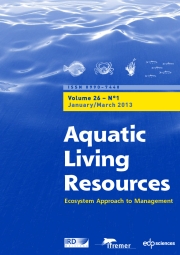Article contents
Implications of human capital enhancement in fisheries
Published online by Cambridge University Press: 27 October 2007
Abstract
Decommissioning programmes have been used in many countries in an attempt to reduce the level of overexploitation in fisheries. The extent to which human capital enhancement may offset capacity reductions, however, has not been previously examined. The study uses a stochastic production frontier model to estimate the impact of differing skipper, vessel and technology characteristics on the productivity of a set of UK trawlers operating in the English Channel. The results suggest that productivity improvements resulting from increased education and training could exceed those from increased technological adoption. Increased investment in human capital enhancement could potentially offset, at least to some degree, the effects of decommissioning in the fishery. The study highlights an apparent oversight in fisheries policy analysis. Considerable attention is paid to the potential problem of technological creep and input substitution. However, enhancing human capital may have a greater impact on stocks than technological adoption in established fisheries.
- Type
- Research Article
- Information
- Copyright
- © EDP Sciences, IFREMER, IRD, 2007
References
- 9
- Cited by




